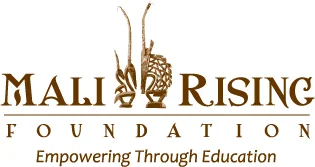Lunchtime in a Mali School
Mali is a country that prioritizes education, despite the many challenges we face with poverty, unrest, and of course the pandemic. One of the biggest challenges for the authorities (and for Mali Rising!) is keeping kids in school until they graduate from middle school. With multiple gold mining areas calling to kids with get-rich-quick dreams, the rural exodus of kids to work and get money, and the long distances walking or biking to get to school every day, many children drop out before they graduate. With the aim of helping stop drop outs, the Mali government has been thinking about many strategies like school lunch program, parent’s involvement, etc. In previous years, many of those strategies did not work very well. However, two years ago, we started noticing a strategy that seemed promising. The government was creating school lunch programs in some rural schools.


